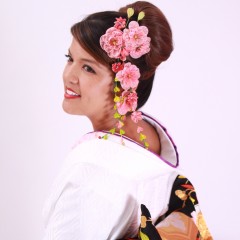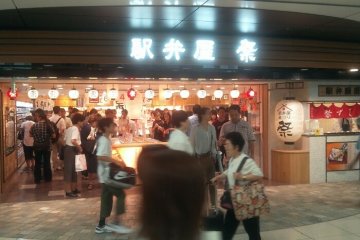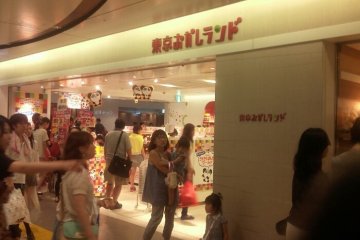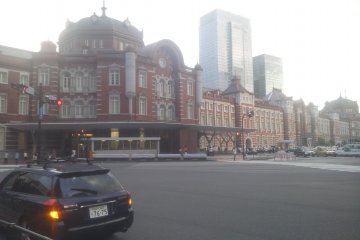Humidity broke. Typhoon gone. The skies are blue! How about cruising around Tokyo in a double-decker bus? With the top down, crisp air against your cheeks and the wind in your hair, a quick tour around the city with an English-speaking guide will get you as acclimated Tokyoites, but from a different angle. It’s an overview, especially if you’re still trying to decide on specific sightseeing spots or if you have just a little free time to spare. Hop on to Sky Bus Tokyo!
We started our tour from Roppongi Hills at Bus stop “A” (or “Pick up Point ‘A’”). Roppongi Hills is a large complex of restaurants, shopping, cinema, arts and special events. You can easily lose your sense of direction here, so follow the signs closely or refer to the Information desk for assistance. Upon arrival, a Hop Line staff member quickly greets you and offers a small step stool to assist you on your way to the second deck. The second level is the only section open for passenger seating so I imagine the top is placed back on if it rains.
From Roppongi Hills we studied the route map and decided to end our tour at Keio Plaza Hotel Tokyo located in Shinjuku. This particular Hop Line actually starts from Keio Plaza Hotel Tokyo named as “Bus Stop 1” and has three stops in between: Roppongi Hills (Bus Stop 2), NHK Studio Park in Shibuya (Bus Stop 3), Hotel Sunroute Plaza Shinjuku (Bus Stop 4). From Roppongi to Shinjuku, the entire ride was 1 hour total.
Other than having a bit of relaxation plus free Wi-fi time during the hour, there were a few highlights along the way. The ever-popular Scramble Crossing in Shibuya where you can also find the Statue of Hachiko. The Shibuya Starbucks with a killer view for a vast amount of people-watching, even after you finish your latte. The NHK Studio Park stop is at the Japan public television and radio broadcasting offices. It’s open to the public for a look behind the scenes. Although hidden behind the trees, Yoyogi Park is one of Tokyo’s largest parks. Before it became popular for outdoor activities, it was actually the site of the 1964 Tokyo Olympics. And finally, the skyscrapers and shopping centers in Shinjuku are a sight to see. Make sure you bring the proper camera and lenses so you are to able to fit the gargantuan buildings in your shots. If you’re quick enough you’ll spot the LOVE sign at I-Land tower - one of my favorites to visit every season.


















